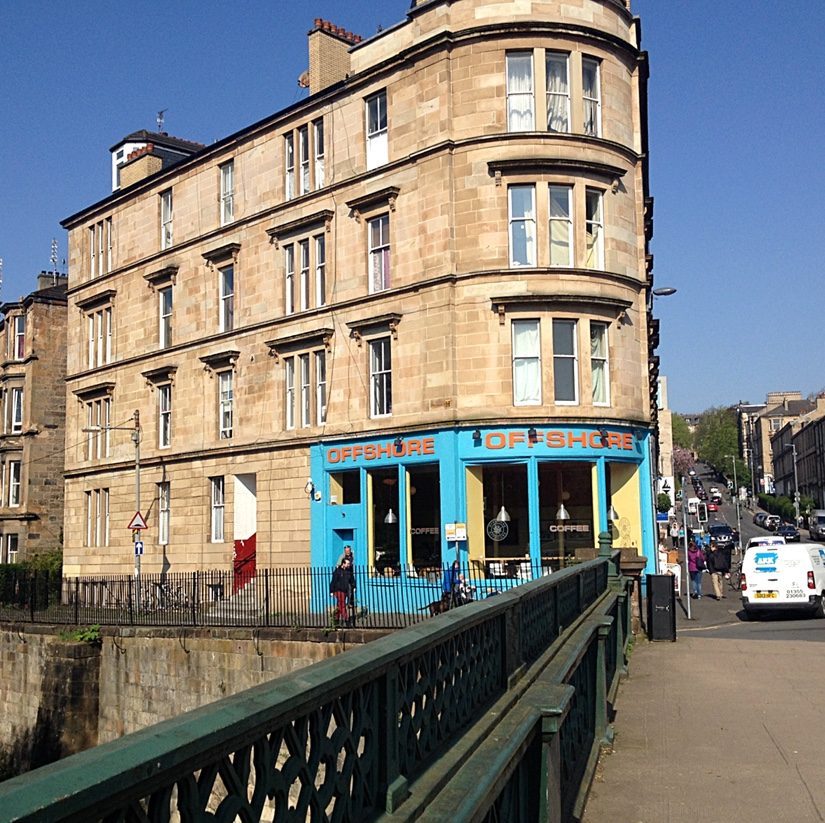
Authors Fred D’Aguiar and James Robertson discuss slavery stories and their place in literature with Alan Riach.
Empire Café project, part of the Commonwealth 2014 Cultural programme will explore Scotland’s involvement with the North Atlantic Slave via tea, coffee, sugar and cotton. Based in the Briggait, home of the Merchant’s Steeple, in Glasgow’s Merchant City for seven days in July 2014. There will be debates, academic papers, literary readings, films, workshops, art installations and discussions all themed around Scotland and slavery.
Authors: Fred D’Aguiar and James Robertson
Chair: Alan Riach
 Fred D’Aguiar: A British-Guyanese poet, novelist and playwright is currently Professor of English at Virginia Tech. Born in London in 1960 to Guyanese parents, he was taken to Guyana in 1962 where he lived with his grandmother until 1972 when he returned, at the age of twelve, to England. D’Aguiar trained as a psychiatric nurse before reading African and Caribbean Studies at the University of Kent, Canterbury. His principal subject is the legacy of slavery.
Fred D’Aguiar: A British-Guyanese poet, novelist and playwright is currently Professor of English at Virginia Tech. Born in London in 1960 to Guyanese parents, he was taken to Guyana in 1962 where he lived with his grandmother until 1972 when he returned, at the age of twelve, to England. D’Aguiar trained as a psychiatric nurse before reading African and Caribbean Studies at the University of Kent, Canterbury. His principal subject is the legacy of slavery.
His first collection of poetry, Mama Dot was published to much acclaim and established his reputation as one of the finest British poets of his generation. The Longest Memory (1994) his first novel tells the story of Whitechapel, a slave on an eighteenth-century Virginia plantation and won both the David Higham Prize for Fiction and the Whitbread First Novel Award. It was adapted for television and televised by Channel 4 in the UK.
In 1997 he wrote Feeding the Ghosts, inspired by a visit to the Merseyside Maritime Museum in Liverpool, based on the true story of a slave who survived being thrown overboard with 132 other men, women and children from a slave ship in the Atlantic.
Fred D’Aguiar’s poetry includes Bill of Rights; a long narrative poem about the Jonestown massacre in Guyana in 1979; and Bloodlines, the story of a black slave and her white lover, published in 2000.
 James Robertson: Angus-based James Robertson is known for translating books for children and young people into Scots but also writes short stories, poetry and novels. His 2003 novel Joseph Knight is based on the true story of a slave, brought from Jamaica to Scotland, who successfully fought for his freedom at the Court of Session in Edinburgh in 1778. It won both the Saltire Society and Scottish Arts Council Book of the Year awards. The Testament of Gideon Mack was published in 2006 and longlisted for the year’s Booker Prize.
James Robertson: Angus-based James Robertson is known for translating books for children and young people into Scots but also writes short stories, poetry and novels. His 2003 novel Joseph Knight is based on the true story of a slave, brought from Jamaica to Scotland, who successfully fought for his freedom at the Court of Session in Edinburgh in 1778. It won both the Saltire Society and Scottish Arts Council Book of the Year awards. The Testament of Gideon Mack was published in 2006 and longlisted for the year’s Booker Prize.
His 2010 book, And the Land Lay Still, which received the Saltire Society Scottish Book of the Year award, is a panoramic novel charting half a century of social and political change in Scotland from the end of the Second World War to the re-establishment of the Scottish Parliament.
Impatient with the standard process of getting poems into magazines Robertson established his own imprint, Kettillonia, to publish both poetry and prose pamphlets. In 2002 with Matthew Fitt he co-founded Itchy Coo, an educational project aimed at getting Scots-language literature into schools, and backing the books with support for teachers.
James Robertson was Writer in Residence at the Scottish Parliament in 2004 and to date the only writer to hold the post. The three lectures he gave to Members of the Scottish Parliament and a complementary series of sonnets were published in Voyage of Intent articulating his sense of Scotland’s heritage and broader hopes for the future under an increasingly independent government.
 Get your tickets here!
Get your tickets here!




Leave a Reply
You must be logged in to post a comment.